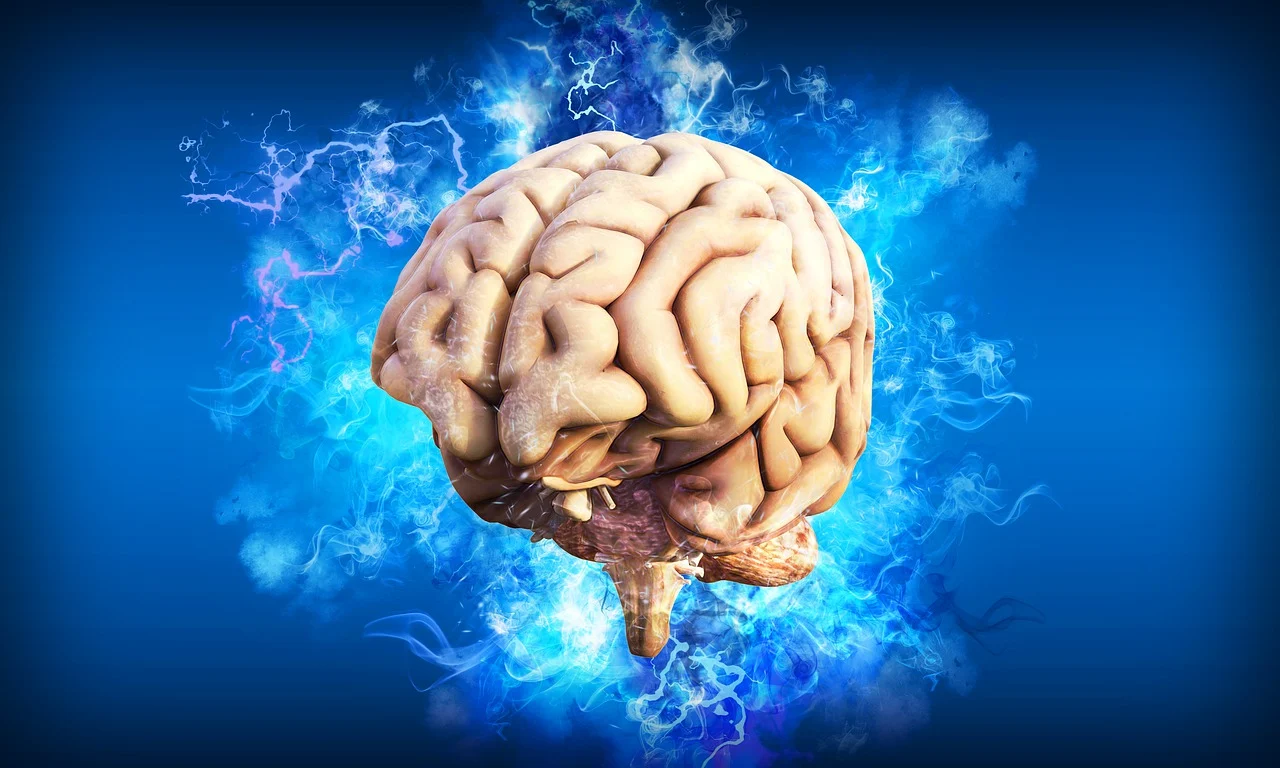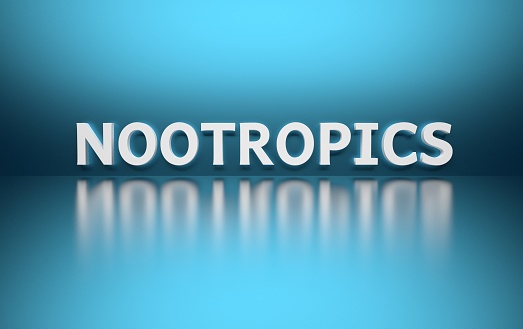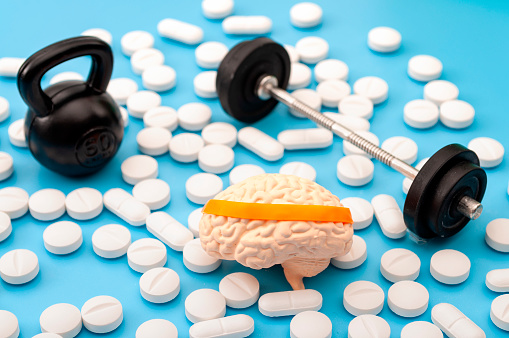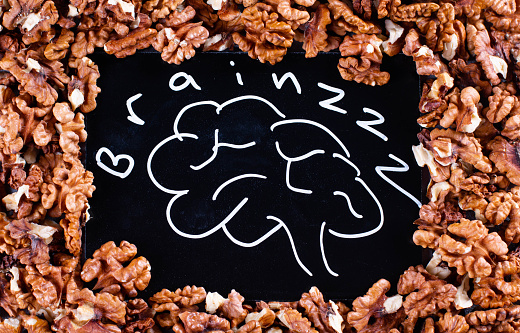Nootropics, also known as “smart drugs,” are a group of substances that enhance your mental processing and mental performance in terms of focus, intelligence, and memory. If you’ve heard about a substance group called memory enhancers or cognition enhancers, these are nootropics.
ADHD (Attention Deficit Hyperactivity Disorder) and ADD (Attention Deficit Disorder) are mental disorders that make learning hard because of how they affect attention. Some symptoms include a lack of focus, disorganization, poor time management, forgetfulness, impulsive behavior, difficulty coping with stress, and lack of motivation.
We aim to investigate which are the best nootropics for ADHD. Like any prescription medications, they carry risks of side effects and interactions, and a person should only take them under a doctor’s care.
It is common for doctors to begin by prescribing drugs to treat attention deficit hyperactivity disorder. However, there may be cases where these drugs don’t improve the condition. As nootropics target your brain chemicals to improve your brain health, they have been suggested to help treat attention deficit hyperactivity disorder.
Nootropics for ADHD also come in the subgroups of prescription nootropics and over-the-counter nootropics. We will explain these two groups in detail within this article so that you can know the differences and how they are used to help brain function.
You should remember that many nootropics are, in fact, supplements before anything else. They aren’t being suggested to take over prescription drugs for attention deficit hyperactivity disorder but to instead partner with it.
Nootropics For ADHD
Prescription nootropics have stimulant effects that can help to combat symptoms of ADHD. Stimulant drugs are meant to boost brain function and balance the levels of your neurotransmitters chemically.
These make up the nootropic group that is prescribed as medication by your doctor. Stimulants, like amphetamine, are the most commonly used to treat ADHD. They tend to be the first prescription drug because they have the reputation of helping to manage ADHD symptoms in up to 80% of people who use them.
So, here’s some information on how stimulants work. The hormones, dopamine and norepinephrine, are catecholamine brain chemicals that have a crucial role in the brain areas that regulate attention and executive functioning. When you have ADHD, these same brain chemicals and essential hormones are imbalanced, and your attention and executive functioning become more vulnerable.
Stimulant medications increase dopamine levels in your brain by slowing down the amount of dopamine absorbed back into your brain’s neural network. As a result, ADHD symptoms reduce and your brain’s executive functions improve. Stimulants also allow excellent communication between brain cells, activating attention-related brain chemicals. Essentially helping get your cognitive system back on track.
The interesting thing about prescription nootropics, or stimulants, is that they work differently. So, you can find that some people with ADHD respond to a specific type of stimulant better than others. We’ve selected two main stimulant groups to explain in detail.
Methylphenidate
This stimulant blocks the reuptake of dopamine and norepinephrine in your brain to ultimately increase your dopamine levels. Additionally, it aims to boost dopamine release from your cells. Some common methylphenidate-based stimulants used for ADHD are:
- Ritalin
- Concerta (methylphenidate extended-release tablets)
- Metadate
- Focalin
Amphetamines
Amphetamines are stimulants that work to promote the release of norepinephrine and dopamine from their storage sites and into the brain pathways. However, they can slow down the reuptake of the two hormones, though not as significantly as the methylphenidate group. Some amphetamine-based stimulants that are suggested for ADHD are:
- Adderall
- Vyvanse
- Dyanavel XR
It’s important to note that all these stimulants cannot and should not be taken without a valid prescription. This rule is in place for your safety. Most prescription medications carry risks of side effects and negative interactions with other medications. The dosage and intake need to be appropriately supervised by a certified doctor.
Some side effects from prescription nootropics are high blood pressure, an abnormally fast heart rate, sleep problems, vision issues, and addiction.
Over The Counter ADHD Medication : Role Of Norepinephrine And Dopamine In ADHD
Non-prescription nootropics are substances that can enhance focus and brain performance. They are not medicines used for directly treating mental health conditions like ADHD or improving sleep problems.
However, they have beneficial effects on cognitive function. These natural and synthetic supplements do not require a prescription for you to take them. This section will describe their brain-stimulating effects and their strengths and weaknesses in helping minimize ADHD symptoms.
#1. Caffeine
Caffeine is the most accessible nootropic supplement, and many people already intake it daily. It is present in beverages like coffee and tea. So, its popularity comes from its stimulant effects that can help you prepare for the day.
Caffeine is essentially safe and can boost mental clarity for many people if you take it in reasonable amounts. The mental function boost of caffeine is more evident for those with ADHD if they simultaneously take amphetamine medication.
The recommended caffeine dosage is not to exceed 400 milligrams a day. This dosage is identical to about four to five cups of coffee or green tea daily. Caffeine may make you jittery, nauseous, anxious, restless, and dizzy if you exceed the recommended amount. These side effects are more detrimental for a person with ADHD.
If you’re not much of a hot beverage lover, caffeine pills and powders are available. However, they have a much more concentrated amount of caffeine. It’s easier to experience a caffeine overdose with this method or even death in extreme cases.
Caffeine is not the best-recommended nootropic for ADHD, even though it shares some similarities with amphetamine medications. You should only use caffeine in the morning and not at night if you want to use it to help minimize ADHD symptoms.
#2. L-theanine
L-theanine is an amino acid, a primary building block of protein, naturally found in green and black teas. You can also purchase it in pure supplement form. It’s not an amino acid that is naturally produced in the body, and it’s not one of our essential nutrients. Regardless, l-theanine provides a range of health benefits, and one of its notable ones is improving your ability to focus.
L-theanine can affect the serotonin and dopamine levels in your brain, which is an advantage for someone with ADHD. With the proper intake, you can notice a balance of mood, brain fog reduction, impulse control, and better stress resistance.
Researchers note that when you take L-theanine with caffeine, you will improve your working memory performance, attention, and alertness. However, L-theanine has not gone through enough clinical trials on people, let alone people with ADHD, to determine if it is suitable to help treat ADHD. Nevertheless, there’s no harm in trying it to boost mental performance. As long as you stay within 100-400 milligrams daily.
#3. Omega-3 Fatty Acids
Omega-3 fatty acids are a popular mental performance supplement. They work as an excellent supplement for many mental health issues. They are polyunsaturated fats that are present in fatty fish as well as fish oil supplements.
You’ve probably had fish oil and b vitamins as a child because you were told it will make you smarter! In some way, it’s true because this fat is most likely to boost brain performance as it has an overall positive effect on brain health.
Omega-3 fatty acids are beneficial in helping to strengthen and build membranes around your brain cells. They essentially help to repair and renew your neurons so that they can work at maximum capacity. These fatty acids have the most research surrounding them, confirming their benefit for overall brain function.
An interesting factor is that omega-3 fatty acids tend to work much better for those who suffer from mild cognitive issues present in the symptoms of ADHD.
There have been some research findings that discovered “cognitively healthy older people” did not benefit enough from omega-3s. Therefore, this is a great discovery to showcase how much those with ADHD can gain from choosing to supplement their treatment with omega-3 fatty acids.
You can find this supplement in capsules, fish oil, algal oil, and krill oil. Fortunately, they don’t tend to produce adverse side effects. Omega-3 fatty acids are considered to be one of the best natural ADHD supplements and cognitive enhancers. However, it’s recommended that if you are on any medications, you should consult your doctor first to avoid uncomfortable drug interactions.
#4. Racetams
Racetams are a group of drugs that consist of synthetic compounds. They have a particular influence over neurotransmitters in the brain. This influence allows them to be considered one of the best nootropics for ADHD patients.
Some particular racetams that are considered to have nootropic effects are piracetam, aniracetam, oxiracetam, phenylpiracetam, and pramiracetam. Even though these racetams are in the same group, they have different uses.
Piracetam is one of the first racetams to be considered a nootropic. It has some mild benefits in boosting working memory and cognitive ability. However, these benefits mainly apply to those who are facing age-related cognitive decline. There isn’t enough research on its benefits for ADHD patients.
Aniracetam is considered to have more significant nootropic effects than Piracetam. This is because it focuses more on improving focus and concentration. As a nootropic, it helps enhance cognitive processes related to learning and retaining information.
It also has some mood-regulating benefits that are also beneficial for impulse control. It is pretty crucial to establish that aniracetam is controversial because the FDA has not approved it fully in the US yet. There are not enough clinical studies to support its benefit in ADHD treatment.
Oxiracetam is one of the potent nootropics for ADHD. So, oxiracetam should be used in only small doses. Its main strengths are diminishing mental fatigue and boosting motivation. Some research has shown that it improves communication within the brain to improve cognitive function in learning.
Phenylpiracetam has mild stimulating effects on the nervous system. It also has protective benefits for the brain to help ensure cognitive enhancement. It can prevent further cognitive decline if taken with the correct dosage.
#5. Ginkgo Biloba
Ginkgo biloba is a herbal supplement native to China, Korea, and Japan. It has long been a remedy to help treat memory issues and improve mental clarity. Specifically for ADHD, there is diverse research on its actual benefits.
One study conducted in 2014 discovered that ADHD symptoms improved for those that took a Ginkgo Biloba supplement. Children took a dose of 240 mg of the supplement every day for a duration of three to five weeks. They exhibited a lower amount of symptoms without experiencing negative side effects.
An earlier study from 2010, however, revealed more results for ADHD groups who either took a ginkgo Biloba supplement or Ritalin for six weeks. Results showed that both groups had a decrease in ADHD symptoms. However, the group that took Ritalin had much more promising results.
Despite these findings, Ginkgo Biloba can still be beneficial for those with ADHD. It can work as a supplementary method to help boost the effects of prescription medications. This supplement interacts with a wide array of medications, especially blood thinners. Therefore , it’s essential to get appropriate advice before considering it in ADHD treatment.
#6. Panax Ginseng
The roots of Panax ginseng have been used medicinally for centuries, particularly as Chinese herbal remedies. It’s important not to confuse it with the other varieties of ginseng that originate from Siberia or America.
Its brain health-enhancing abilities come from an active ingredient called ginseng total saponins (GTS). This active ingredient can help protect the brain cell membranes and improve overall cognitive performance.
A 2011 study, including 8 children diagnosed with ADHD between the ages of 6 to 14 years old, discovered the effects of Panax ginseng on their symptoms. The children took 1000 mg of ginseng every day for eight weeks. The results revealed improvements in cognitive functions, social functioning, and anxiety.
It’s important to note that Panax ginseng may overstimulate children with ADHD that are younger. So, it may not be one of the best nootropics for ADHD.
#7. Rhodiola
Rhodiola is a herb that can help improve alertness, attention, and accuracy. It can be too potent or stimulating for younger children. So, it would be wise to only include it in ADHD treatment for those above nine years old.
Rhodiola’s general use is for strengthening working memory and cognitive function. Research is still ongoing about Rhodiola’s effects on those with attention deficit hyperactivity disorder.
However, there are hints that it may be beneficial to help with this mental disorder. The fact that Rhodiola manages to improve mood and reduce symptoms of stress and fatigue makes it have a potentially positive effect on cognitive performance and stress resistance.
This herb tends to work better on milder cases of ADHD. This is because it is mentally stimulating and has some calming effects. People tolerate it quite well if used in combination with prescription drugs.
#8. Creatine
Creatine is a naturally occurring amino acid. Infact, creatine supplements are quite popular when it comes in enhancing physical performance. Surprisingly, its positive effects on brain chemicals and mental performance were not what first made this supplement famous. Specifically, creatine’s impact on brain function comes from how it aids cognitive reasoning and short-term memory.
Creatine is a substance that our bodies make naturally. However, it tends to be deficient in vegetarians. It’s essential for our muscles and our brains to function normally. The way creatine works in the brain is by balancing neurotransmitter synthesis and encouraging better and faster connections between cells to improve how we process things around us.
For those with ADHD, creatine is one of the best nootropics for ADHD. It is really affordable and has a low chance of adverse side effects. It helps minimize ADHD symptoms because it targets the brain cell energy system, which will increase the ability to concentrate and retain information.
Notably, most of the positive creatine research involves adults. So, we are still unsure if it directly benefits young children with ADHD. It’s best to consult your doctor before adding it as a natural ADHD supplement.
Is Nootropics Good For ADHD?
ADHD is a mental health condition that directly affects the ability to maintain focus during the crucial years of children’s and young adults’ learning experience. The inclusion of smart drugs and supplements appears to be the best way to combat it. The nootropics for ADHD that may have the most influence and the most research backing them are prescription nootropics.
Nootropics for ADHD that doctors prescribe focus on ADHD’s brain chemical connection by providing stimulating effects. These ADHD drugs help to treat restlessness and improve overall concentration directly.
Most ADHD treatments utilize a combination of these medications and cognitive behavioral therapy. Some research suggests that Ginkgo biloba can improve memory and mental processing and may be beneficial in stressful situations.
Such treatments tend to make a significant difference in symptoms. However, the main issue with prescription ADHD drugs stems from creating a drug dependence that does not fare well in the future. This is mainly because the most prominent population with an ADHD diagnosis taking these medications will be children.
Natural ADHD supplements are continuously under review and research as an alternative to traditional ADHD treatments. This is particularly because they are less likely to cause dependence. For those with mild ADHD symptoms, these nootropic supplements work best because they take effect at a slower pace and in a less invasive way.
Some of these ADHD supplements, like omega-3 fatty acids, l-theanine, and creatine, work well in the body because they are essential for many cognitive functions.
Unfortunately, we cannot rely on natural nootropic supplements alone to take the place of medications in ADHD treatment. Even though they are a safer alternative. There are some suggestions to have a healthy balance of supplements, medication, and cognitive behavioral therapy.
Particularly for those with severe cases of ADHD. However, more research still needs to be done on nootropics for ADHD. Research is essential so we can have reliable scientific references on how this treatment can work in the safest way.
Nootropics For ADHD Symptoms
The main thing to remember for those who want to incorporate natural nootropics into treating ADHD is always to seek advice from a doctor first. No matter how safe a supplement is, there is always the risk of adverse interactions they may have with other medications. The most common interactions are with blood thinners.
Even prescription nootropics have pitfalls when it comes to safety. A common medication used in ADHD treatment, Adderall, is effective. However, it has some dangers associated with it. With prolonged use, substance dependence can occur and, in extreme cases, even result in death. Always take prescription medications with caution. You should keep checking in with your doctor to avoid misuse.
You need to choose the type of the so-called smart drugs you decide to include very carefully. This is because not every supplement label includes the exact ingredients. It’s best if a medical professional instructs you on which exact brand of supplement to include.
This way, you avoid consuming potential allergens and supplements which don’t indicate a safe dosage. It’s easier for supplements to contain discreet toxins because they are not as heavily regulated as prescription medication.
Medical professionals can suggest purchasing from brands with good reputations and continually test all their products through third-party labs.
Conclusion: What Is The Best Stimulant For ADHD?
ADHD is a growing mental health condition among children, teenagers, and adults. It is steadily spreading throughout the US population. So, a range of appropriate treatment methods are continuously in need.
The most at-risk population seems to be children. Because of this, we need to carefully consider the forms of treating ADHD not to affect them in the long run.
Brain boosting nootropics can have a large significance to those struggling with ADHD. This significance is because of their ability to minimize the most disruptive symptoms. It is difficult to suggest the best nootropics for ADHD patients because everyone is different.
The issue with ADHD treatment is that not a single form of treatment will help all symptoms. ADHD has different causes, genetic or otherwise, and this affects the overall treatment method. This complication is why research on effective nootropics for this mental health condition is still ongoing.
Fortunately, many nootropic supplements are safe for daily use if you request advice from a doctor or wellness professionals first. Generally, nootropics tend to be a safer alternative to many medications, so they can be the best option to start with. At least with supplements, you can try multiple nootropics and incorporate them in a trial-and-error way. You can then find the one that is suitable for your symptoms.
There are also some natural alternatives you can incorporate to reduce symptoms. These methods include having a healthy diet, performing an adequate amount of exercise, and improving sleep cycles.
Practicing these natural remedies in conjunction with natural supplements can positively affect overall ADHD treatment and improve mental performance.






